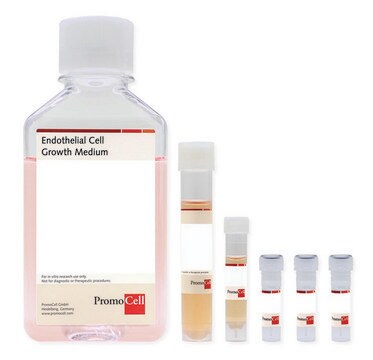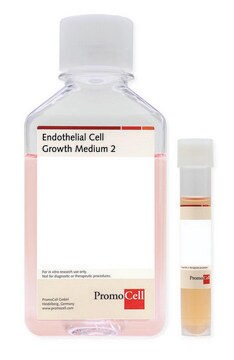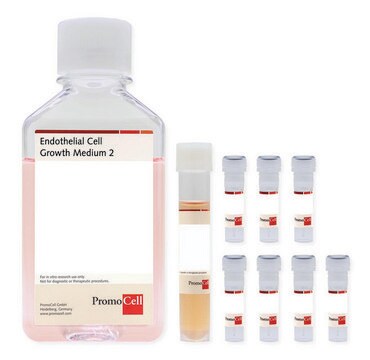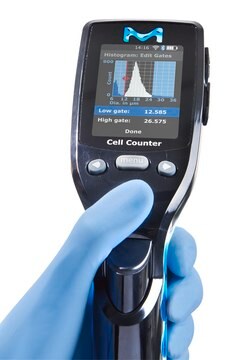C-12203
Human Umbilical Vein Endothelial Cells (HUVEC)
Pooled, 500,000 cryopreserved cells
Sinónimos:
HUVEC cells
About This Item
Productos recomendados
origen biológico
human umbilical cord vein
envase
pkg of 500,000 cells
morfología
( endothelial)
técnicas
cell culture | mammalian: suitable
Condiciones de envío
dry ice
temp. de almacenamiento
−196°C
Descripción general
Origen línea celular
Aplicación
Calidad
Advertencia
Rutina de subcultivo
Otras notas
Productos recomendados
Cláusula de descargo de responsabilidad
Código de clase de almacenamiento
12 - Non Combustible Liquids
Clase de riesgo para el agua (WGK)
WGK 1
Punto de inflamabilidad (°F)
Not applicable
Punto de inflamabilidad (°C)
Not applicable
Elija entre una de las versiones más recientes:
Certificados de análisis (COA)
Lo sentimos, en este momento no disponemos de COAs para este producto en línea.
Si necesita más asistencia, póngase en contacto con Atención al cliente
¿Ya tiene este producto?
Encuentre la documentación para los productos que ha comprado recientemente en la Biblioteca de documentos.
Los clientes también vieron
Protocolos
Cell culture protocol: the endothelial cell transwell migration and invasion assay used to study angiogenesis and cancer cell metastasis. Explore over 350 PromoCell products.
Contenido relacionado
Cell culture protocol: the endothelial tube formation assay to study angiogenesis using HUVECs and other endothelial cell types. Explore over 350 PromoCell products.
Nuestro equipo de científicos tiene experiencia en todas las áreas de investigación: Ciencias de la vida, Ciencia de los materiales, Síntesis química, Cromatografía, Analítica y muchas otras.
Póngase en contacto con el Servicio técnico





